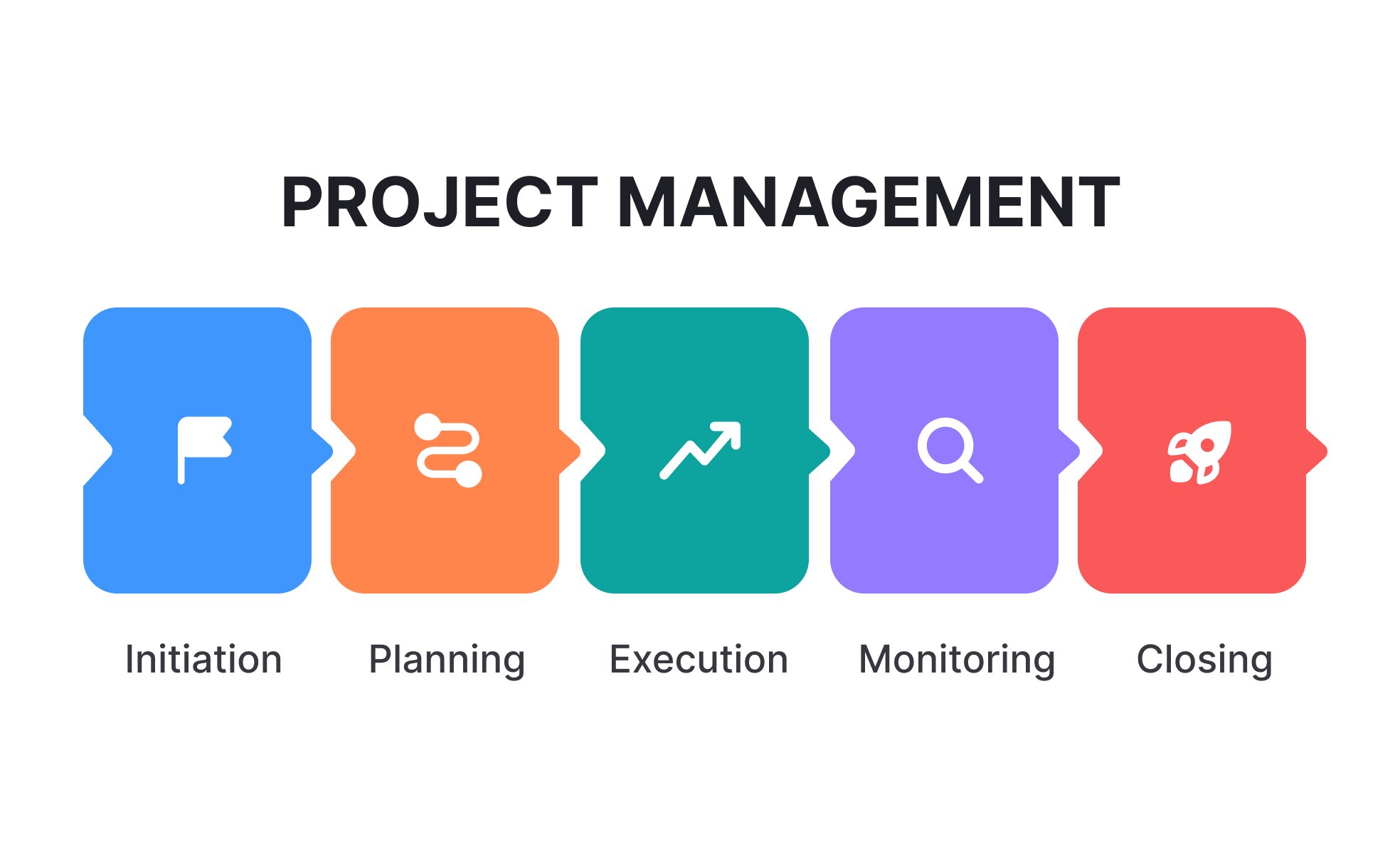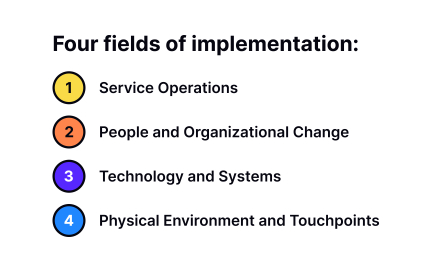Project Management
Project management organizes tasks, timelines, roles, and tools so teams can deliver work efficiently, with clear ownership and shared visibility.

What is Project Management?
Your projects consistently run late, go over budget, or fail to deliver expected outcomes because tasks aren't coordinated effectively and team members work without clear understanding of priorities, dependencies, or success criteria.
Most teams struggle with project execution because they confuse activity management with outcome achievement, focusing on task completion rather than systematic approaches to delivering value within constraints.
Project management is the systematic application of knowledge, skills, tools, and techniques to project activities to meet specific objectives within defined scope, time, and budget constraints while coordinating resources and managing risks throughout the project lifecycle.
Teams with strong project management achieve 70% higher success rates, 35% better resource utilization, and 25% faster delivery because they follow proven processes for planning, executing, and controlling work toward specific outcomes.
Think about how companies like NASA manage complex space missions through rigorous project management that coordinates thousands of people and components, or how construction projects deliver buildings on time and budget through systematic planning and execution.
Why Project Management Matters for Delivery Success
Your projects suffer from scope creep, missed deadlines, and budget overruns because work isn't organized systematically, leading to wasted effort and disappointing results despite team members working hard.
The cost of poor project management compounds throughout project lifecycles. You get delayed deliveries, exceeded budgets, frustrated team members, disappointed stakeholders, and competitive disadvantage from slower execution on important initiatives.
What effective project management delivers:
Higher success rates because systematic planning identifies risks, dependencies, and resource requirements before they become problems that derail project progress.
When you plan thoroughly and manage systematically, problems get solved before they impact deadlines or outcomes.
Better resource utilization through optimization of team skills, time allocation, and budget spending that maximizes value delivery within available constraints.
Faster delivery because project management eliminates wasted effort, prevents rework, and keeps teams focused on critical path activities that move projects forward efficiently.
Improved stakeholder satisfaction through clear communication about progress, realistic expectation setting, and consistent delivery of promised outcomes within agreed timelines.
Enhanced team coordination as project management creates shared understanding of objectives, responsibilities, and timelines that enables effective collaboration across different roles and skills.
Advanced Project Management Strategies
Once you've established basic project management capabilities, implement sophisticated coordination and optimization approaches.
Agile Project Management Integration: Combine traditional project management with agile methodologies that enable flexibility while maintaining delivery predictability and stakeholder communication.
Portfolio Project Management: Coordinate multiple related projects to optimize resource allocation and strategic outcomes across project portfolios rather than managing projects in isolation.
Risk-Based Project Planning: Use sophisticated risk analysis and scenario planning to develop project approaches that remain robust under different conditions and challenges.
Stakeholder-Centric Project Design: Design project management approaches that serve different stakeholder needs while maintaining team productivity and delivery focus.
Project management is the practice of planning, organizing, and overseeing the execution of a project to achieve specific goals and deliver desired outcomes. It involves defining project objectives, establishing timelines, allocating resources, managing risks, and coordinating the efforts of team members or stakeholders involved in the project. Project management ensures that projects are completed efficiently, within budget, and according to predefined quality standards.
Project management consists of several key components:
- Project planning: This involves defining project goals, objectives, and scope, as well as identifying project requirements, deliverables, and milestones. Project planning includes creating a project schedule, estimating resources needed, and developing a comprehensive project plan that outlines the tasks and activities required to complete the project.
- Project organization and team management: This component involves assembling the project team, defining roles and responsibilities, and establishing communication channels. Project managers coordinate team members, assign tasks, and monitor progress to ensure effective collaboration and efficient use of resources.
- Risk management: Risk management involves identifying potential risks and uncertainties that may impact the project's success. Project managers assess risks, develop mitigation strategies, and monitor and control risks throughout the project lifecycle to minimize their impact on project outcomes.
- Project monitoring and control: This component focuses on tracking project progress, comparing it to the planned schedule and budget, and taking corrective actions when necessary. Project managers monitor project performance, gather and analyze data, and make adjustments to ensure the project stays on track and meets its objectives.
- Communication and stakeholder management: Effective communication is crucial in project management. Project managers facilitate communication among team members, stakeholders, and clients, ensuring everyone is informed about project status, updates, and changes. They manage stakeholder expectations, address concerns, and maintain positive relationships with all involved parties.
Implementing project management practices provides several benefits:
- Improved project success rates: Project management increases the likelihood of project success by providing a structured approach to planning, execution, and control. It helps identify potential risks and challenges early on, enables effective resource allocation, and ensures timely delivery of project milestones and objectives.
- Efficient resource allocation: Project management helps optimize the allocation of resources, including human resources, time, and budget. By carefully planning and coordinating activities, project managers can avoid resource bottlenecks, optimize productivity, and reduce unnecessary costs.
- Enhanced collaboration and communication: Project management emphasizes effective communication and collaboration among project team members, stakeholders, and clients. Clear communication channels, well-defined roles, and regular updates foster a collaborative work environment, improving teamwork, and reducing misunderstandings or conflicts.
- Improved decision-making: Project management provides project managers with data and insights to make informed decisions. Project monitoring and control mechanisms enable timely identification of deviations from the plan, allowing project managers to take corrective actions promptly and make well-informed decisions based on real-time information.
- Increased customer satisfaction: Effective project management ensures that projects are delivered according to customer requirements and expectations. It helps manage customer relationships, addresses concerns proactively, and delivers high-quality outcomes, leading to increased customer satisfaction and positive feedback.
Recommended resources
Courses

Leadership Mastery

Cross-Functional Design & Product Teams

Government Design Foundations
Lessons

Who is a Design Leader?

How to Introduce Design Thinking in Your Team

Measurement of Design Team Success
Exercises
Projects

HappySense App - Case Study

Dying Revolution - Making top 100 scoring game in four days for GMTK 2025













